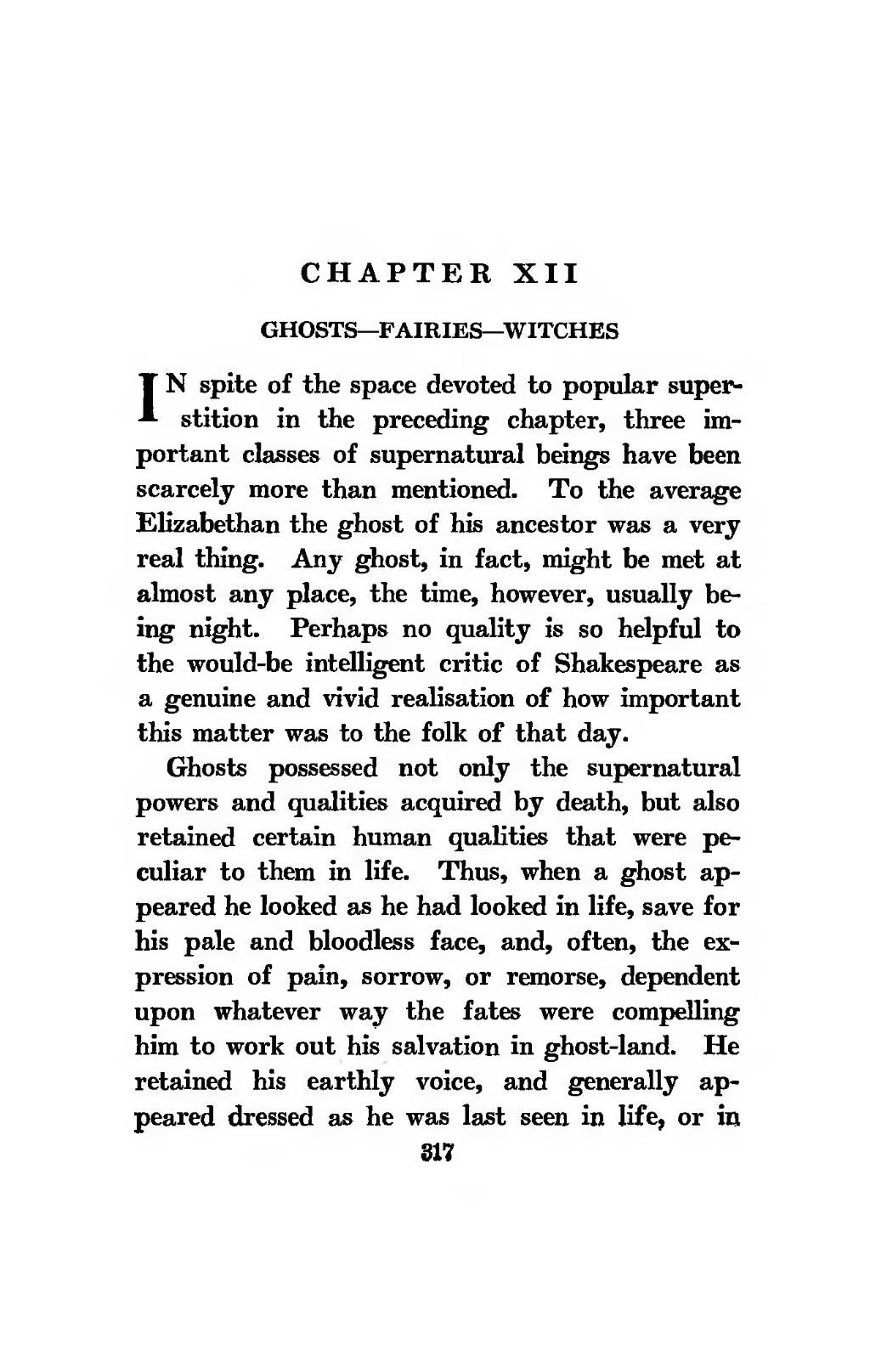CHAPTER XII
GHOSTS—FAIRIES—WITCHES
IN spite of the space devoted to popular superstition in the preceding chapter, three important classes of supernatural beings have been scarcely more than mentioned. To the average Elizabethan the ghost of his ancestor was a very real thing. Any ghost, in fact, might be met at almost any place, the time, however, usually being night. Perhaps no quality is so helpful to the would-be intelligent critic of Shakespeare as a genuine and vivid realisation of how important this matter was to the folk of that day.
Ghosts possessed not only the supernatural powers and qualities acquired by death, but also retained certain human qualities that were peculiar to them in life. Thus, when a ghost appeared he looked as he had looked in life, save for his pale and bloodless face, and, often, the expression of pain, sorrow, or remorse, dependent upon whatever way the fates were compelling him to work out his salvation in ghost-land. He retained his earthly voice, and generally appeared dressed as he was last seen in life, or in
317

